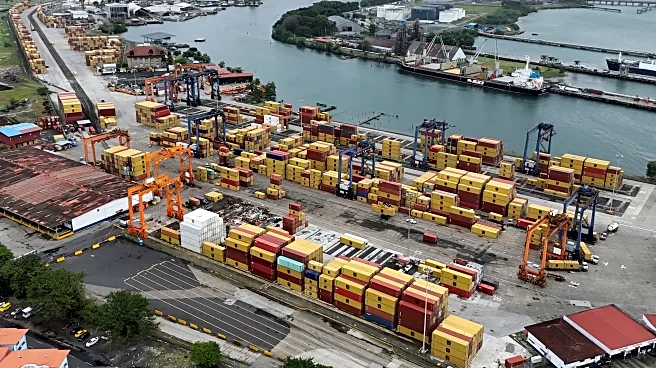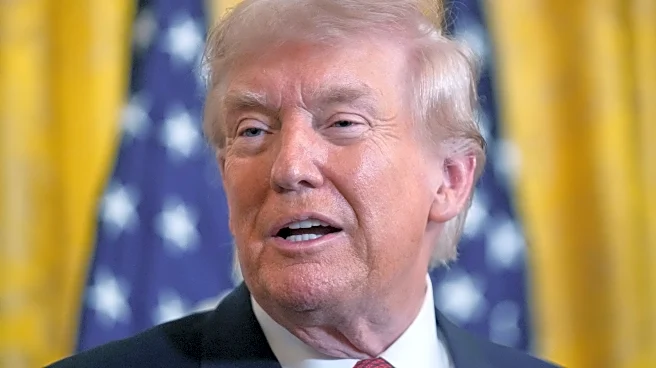What's Happening?
Oil prices experienced a decline on Monday, influenced by skepticism regarding the immediate impact of a newly established trade deal framework between the United States and China on oil demand. Brent crude futures decreased by 32 cents to $65.62 per barrel,
while U.S. West Texas Intermediate crude futures fell by 30 cents to $61.20. The trade deal framework, announced by U.S. Treasury Secretary Scott Bessent, aims to prevent 100% U.S. tariffs on Chinese goods and address China's rare-earth export controls. Despite the positive sentiment in global stock markets, oil market participants remain cautious about the deal's potential to boost demand. Additionally, Iraq's oil minister confirmed that a recent fire at the Zubair oilfield did not affect the country's oil exports. OPEC and its allies have reversed previous production cuts to regain market share, which has contributed to stabilizing oil prices.
Why It's Important?
The decline in oil prices highlights ongoing concerns about global oil demand, despite the positive developments in U.S.-China trade relations. The skepticism among oil market participants suggests that the trade deal framework may not immediately translate into increased oil consumption. This situation underscores the complex dynamics of the global oil market, where geopolitical factors, such as U.S. and EU sanctions on Russia, continue to play a significant role. The potential for continued challenges in Russian oil entering the market, depending on the enforcement of sanctions, adds another layer of uncertainty. The outcome of Iraq's negotiations over its oil production quota within OPEC could also influence future oil prices. The broader impact on U.S. industries and economic stakeholders will depend on how these geopolitical and market factors evolve.
What's Next?
The next steps involve monitoring the implementation and impact of the U.S.-China trade deal framework on global oil demand. Market participants will be closely watching U.S. consumption patterns and the enforcement of sanctions on Russia, which could affect oil supply dynamics. Additionally, the outcome of Iraq's negotiations within OPEC regarding its production quota will be crucial in determining future oil market stability. Stakeholders, including political leaders and businesses, will need to adapt to these developments to navigate the evolving energy landscape.















